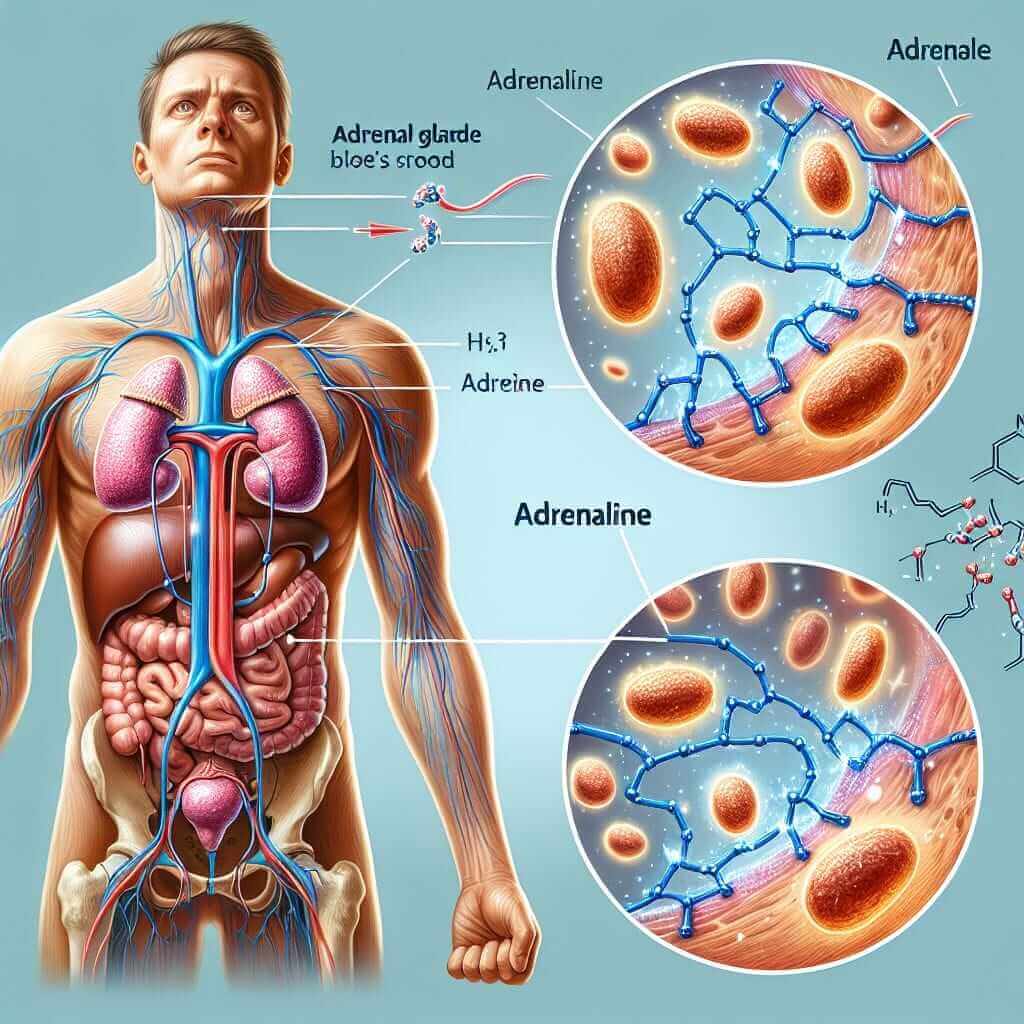The word “adrenaline” (pronounced /əˈdrɛnəlɪn/), often used as a noun, is a key term for those preparing for the IELTS exam, particularly within the realm of health and medicine. It often crops up in the Listening and Reading sections and can be a valuable addition to your vocabulary for the Speaking and Writing sections, especially when discussing topics like stress, excitement, or physical activity.
Here are some synonyms for “adrenaline” you might encounter:
- Epinephrine: (pronounced /ˌɛpɪˈnɛfrɪn/) This is the scientific term for adrenaline and is often used interchangeably.
- Adrenaline rush: (noun phrase) This describes the sudden feeling of energy and focus caused by a surge of adrenaline.
- Fight-or-flight response: (noun phrase) This is the physiological reaction triggered by adrenaline, preparing the body to confront a threat or flee.
Understanding Adrenaline
Adrenaline is a hormone, meaning it acts as a chemical messenger in the body. It’s produced in the adrenal glands, which sit atop your kidneys. When you face a stressful or exciting situation, your brain sends a signal to these glands, triggering the release of adrenaline into your bloodstream. This surge prepares your body for action.

Adrenaline in the IELTS Exam
“Adrenaline” and its related terms can appear across all four sections of the IELTS exam:
- Listening: You might hear it in a lecture about stress, a conversation about extreme sports, or a news report on a dramatic rescue.
- Reading: You might encounter “adrenaline” in articles about health, psychology, sports science, or even adventure tourism.
- Speaking: You could use it to describe your feelings about an exciting experience, discuss the impact of stress, or explain your passion for a thrilling hobby.
- Writing: You might incorporate it into an essay discussing the benefits of exercise, the impact of modern lifestyles on health, or the appeal of adventure activities.
Applying Your Knowledge: Examples in Context
Let’s look at how “adrenaline” might be used in the IELTS exam:
Listening:
- Script: “The athlete admitted that despite the pressure of the competition, she felt an incredible adrenaline rush as she stepped onto the track.”
- Question: What did the athlete feel when she entered the competition?
- Answer: An adrenaline rush.
Speaking:
- Examiner: Do you enjoy participating in extreme sports?
- Candidate: Absolutely! I love the feeling of adrenaline I get from pushing my limits, whether it’s rock climbing or white-water rafting.
Writing Task 2:
- Prompt: Some people believe that engaging in dangerous activities helps us to appreciate life more. To what extent do you agree or disagree?
- Sample response: “Indeed, activities like skydiving or bungee jumping trigger an adrenaline surge, making us feel intensely alive and present in the moment.”
Word Combinations with ‘Adrenaline’
To use “adrenaline” effectively, it’s helpful to know which words commonly appear alongside it:
- Adrenaline junkie: (noun) Someone addicted to the feeling of adrenaline. “He’s a real adrenaline junkie – he loves skydiving and bungee jumping!”
- Adrenaline pumping: (adjective phrase) Describing an activity that causes a surge of adrenaline. “The music was so adrenaline pumping that we couldn’t help but dance.”
- Fuelled by adrenaline: (adjective phrase) Describing actions driven by the effects of adrenaline. “He managed to lift the car off the ground, fuelled by adrenaline and the need to save his friend.”
Idioms and Expressions
While “adrenaline” is not typically used in idioms, here are some related expressions:
- Get your blood pumping: This means to do something that makes you feel energized and excited. “A brisk walk in the morning really gets my blood pumping!”
- A shot of adrenaline: This refers to a sudden feeling of energy and excitement. “Meeting my childhood hero was such a shot of adrenaline!”
Conclusion
Mastering vocabulary related to health and medicine, such as “adrenaline,” is crucial for IELTS success. Remember to practice using these words in context to build your confidence and fluency. By understanding the meaning, usage, and related terms associated with “adrenaline,” you’ll be well-equipped to tackle any questions or prompts that come your way.